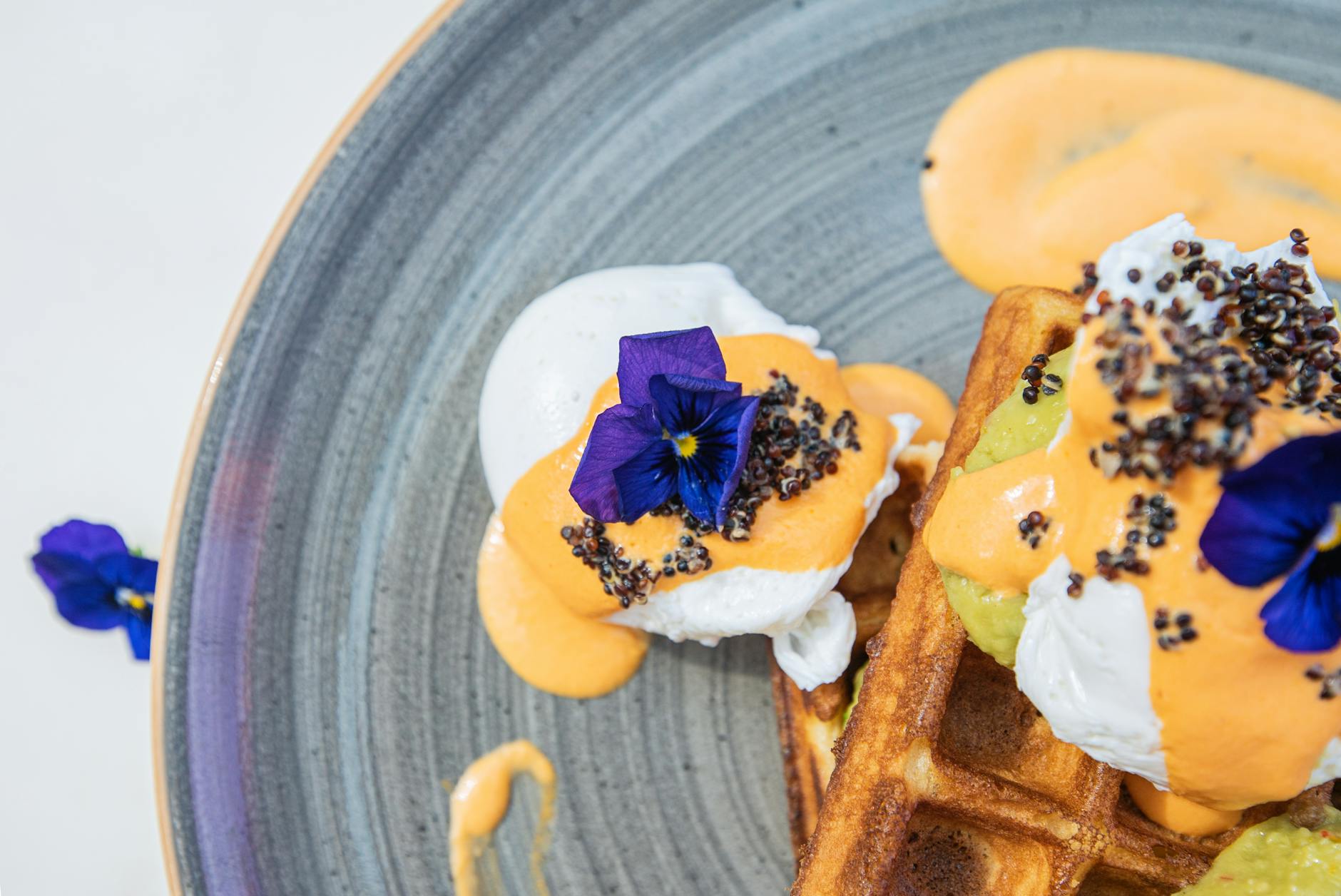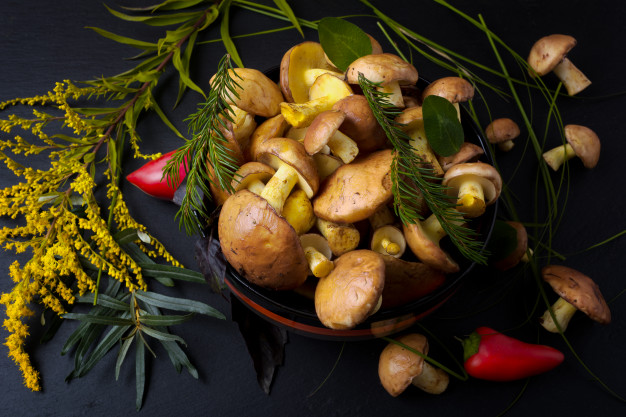The Effects of Black Sesame Seeds on Hair Darkening: Separating Myth from Science
Black sesame seeds have long been believed to possess properties that can darken hair. This popular belief has prompted many people to incorporate black sesame seeds into their diets in hopes of achieving darker hair. In this blog post, we will explore the question: Does eating black sesame darken hair? We will delve into the scientific evidence and myths surrounding this topic to provide you with a clear understanding of the relationship between black sesame consumption and hair color.
The Connection Between Diet and Hair Health
Proper nutrition plays a crucial role in maintaining healthy hair. The food we consume provides essential nutrients that support hair growth and overall hair health. Understanding how nutrition impacts hair color and the role of melanin in hair pigmentation can shed light on the connection between diet and hair health.
How Nutrition Impacts Hair Color
Nutrition directly influences the condition of our hair. A balanced diet rich in essential vitamins and minerals, such as vitamin A, B vitamins, biotin, and iron, promotes healthy hair growth and can help maintain natural hair color. Nutrient deficiencies, on the other hand, can lead to hair thinning, dullness, and even premature graying.
Consuming a variety of nutrient-dense foods, including fruits, vegetables, lean proteins, and whole grains, can supply the body with the necessary building blocks for vibrant and healthy hair. Additionally, staying hydrated by drinking an adequate amount of water is essential for maintaining hair moisture and preventing brittleness.
The Role of Melanin in Hair Pigmentation
Melanin, the pigment responsible for determining hair and skin color, plays a key role in hair pigmentation. Hair color is determined by the type and amount of melanin present in the hair shaft. Eumelanin is responsible for black and brown hair colors, while pheomelanin contributes to red and blonde hues.
Changes in dietary habits or nutritional deficiencies can influence melanin production, potentially impacting hair color. While the genetic predisposition primarily determines hair color, adequate nutrition can support the body’s natural melanin production and help maintain vibrant hair color.
Unveiling the Mystery of Black Sesame Seeds
Derived from the plant Sesamum indicum, native to sub-Saharan Africa, black sesame seeds are transformed into a potent superfood through the process of grinding. Grinding elevates the flavor, and, more importantly, enhances nutrient availability, facilitating absorption in our bodies.
What Are Black Sesame Seeds?
Black sesame seeds are tiny, oil-rich seeds known for their unique nutty flavor and their place in traditional medicine. They are widely used in Asian cuisine, not only for their taste but also for their potential health benefits.
Nutritional Profile of Black Sesame Seeds
Black sesame seeds are a rich source of essential nutrients. They are high in dietary fibre, which supports digestive health, and are also packed with protein, calcium, magnesium, and B vitamins. These nutrients play vital roles in bone health, brain function, energy levels, and metabolism.
Incorporating black sesame seeds into your diet can bring a unique flavor and a range of nutritional benefits. From garnishing salads and soups to being used as a gluten-free flour alternative in baking, the versatile nature of black sesame seeds makes them a valuable addition to any culinary repertoire.
Black Sesame Seeds and Hair Darkening: The Claims
Before delving into whether black sesame seeds can darken hair, it’s essential to understand the traditional beliefs and practices surrounding this claim, as well as the scientific perspective.
Traditional Beliefs and Practices
In traditional Chinese Medicine, black sesame seeds have been hailed as one of the top anti-aging foods. According to this ancient practice, black sesame seeds not only nourish the scalp and stimulate hair growth but also have the ability to promote melanocyte activity, leading to the production of melanin – the pigment responsible for hair and skin color. It is believed that regular consumption of black sesame seeds can reverse greying and contribute to healthy hair.
What Science Says
Research indicates that black sesame seeds are rich in antioxidants that can counteract the harmful effects of free radicals, thereby mitigating cell damage and the aging process, including greying hair and hair loss. These seeds are also a plentiful source of essential vitamins and minerals such as copper, manganese, calcium, magnesium, iron, zinc, phosphorus, vitamin B1, amino acids, selenium, melanin, and dietary fiber. Additionally, they contain natural antioxidants such as sesamin, sesamolin, and sesamol. These nutritional components play a crucial role in supporting overall hair health and potentially impacting hair pigmentation.
 Photo by Quang Nguyen Vinh
Photo by Quang Nguyen Vinh
Exploring the Link Between Black Sesame Seeds and Melanin Production
Black sesame seeds have been a part of traditional medicine for centuries, celebrated for their potential to enhance hair and skin health. In this section, we delve into the connection between black sesame seeds and melanin production, as well as the role of essential minerals like copper and zinc in melanin synthesis.
The Role of Copper and Zinc in Melanin Synthesis
Melanin, the pigment responsible for the color of hair, skin, and eyes, is synthesized through a complex biochemical process. Copper plays a crucial role in the enzyme responsible for melanin production, while zinc contributes to the regulation of this process. These minerals are integral to the biochemical pathways that lead to melanin formation, highlighting their significance in maintaining healthy hair pigmentation.
Does Black Sesame Influence Melanin?
Research suggests that the high content of copper and zinc in black sesame seeds may positively impact melanin synthesis. By consuming black sesame seeds, individuals may potentially support the natural production of melanin, which could contribute to maintaining hair color and overall hair health. While further scientific exploration is warranted, the traditional use and anecdotal evidence support the notion of black sesame seeds influencing melanin production.
 Photo by Denys Gromov
Photo by Denys Gromov
Other Benefits of Black Sesame Seeds for Hair
Black sesame seeds offer a myriad of benefits for hair health, extending beyond just darkening hair. Let’s dive into some of the additional advantages these tiny seeds have to offer:
Strengthening Hair
Regular consumption of black sesame seeds can contribute to strengthening hair follicles, leading to reduced hair breakage and increased resilience against damage. The rich mineral content, including calcium and magnesium, supports the structural integrity of hair strands, promoting overall hair strength and vitality.
Promoting Hair Growth
Black sesame seeds are a potent source of essential nutrients such as protein, healthy fats, and antioxidants, which play a vital role in promoting hair growth. These nutrients nourish the scalp, support healthy blood circulation, and provide the building blocks necessary for robust and lustrous hair growth.
 Photo by Quang Nguyen Vinh
Photo by Quang Nguyen Vinh
How to Incorporate Black Sesame Seeds into Your Diet
Sesame seeds, particularly the black variety, can be easily incorporated into your diet to reap their nutritional benefits. Here are a few simple ways to include black sesame seeds in your meals:
Direct Consumption of Black Sesame Seeds
Black sesame seeds can be consumed directly, either as a snack or added to dishes for a nutty flavor and a nutritional boost. You can sprinkle them over salads, yogurt, or smoothie bowls. They can also be ground into a fine powder and added to baked goods, such as muffins and bread, for an earthy taste.
Recipes and Ideas for Including Black Sesame in Meals
Tofu Halloumi With Black Sesame Soba

Source: Tofu Halloumi With Black Sesame Soba/One Green Planet
Try this flavorful recipe by Sylwia Radzaj, where tofu is marinated and grilled to resemble halloumi cheese, then served with soba noodles tossed with toasted black sesame seeds and sesame oil for a rich, nutty flavor.
Healthy Sesame Mushroom, Tofu, and Asparagus Stir-Fry 
Source: Healthy Sesame Mushroom, Tofu, and Asparagus Stir-Fry/One Green Planet
Incorporate black sesame seeds into this scrumptious stir-fry by Pavani Nandula, adding a nutty crunch to a hearty mix of tender asparagus and fried tofu. It’s a quick, tasty, and nutritious meal option.
By integrating black sesame seeds into your diet through direct consumption and creative recipes, you can elevate the flavor and nutritional content of your meals.
Cautions and Considerations
Potential Allergic Reactions
When consuming black sesame, it’s essential to be aware of potential allergic reactions. Some individuals may develop allergic responses to sesame seeds, leading to symptoms such as itching, hives, swelling, or even anaphylaxis. If you have a history of seed or nut allergies, it’s crucial to exercise caution when incorporating black sesame into your diet. Always consult with a healthcare professional if you have any concerns about potential allergic reactions.
Recommended Daily Intake
Monitoring the recommended daily intake of black sesame is important for safely incorporating it into your diet. The typical serving size of black sesame seeds is approximately 1 to 2 tablespoons per day. It’s advisable to consume black sesame in moderation as part of a balanced diet to avoid any adverse effects from overconsumption.
Overconsumption
While black sesame offers various health benefits, overconsumption can lead to potential issues. The high oil content in sesame seeds means they are calorie-dense, and excessive consumption may contribute to an overload of calorie intake. Additionally, consuming large quantities of sesame seeds may lead to digestive discomfort. Maintaining awareness of portion sizes and incorporating black sesame seeds in moderation is key to preventing overconsumption-related concerns.
Conclusion
In conclusion, while there is anecdotal evidence and traditional beliefs that eating black sesame can darken hair, there is no scientific research or conclusive evidence to support this claim. It is important to make informed decisions about dietary choices based on verified information rather than unsubstantiated claims. It is always best to consult with a healthcare professional or a nutritionist before making significant changes to your diet to affect your physical appearance.
Read More: Does Coffee Cause hair loss?







